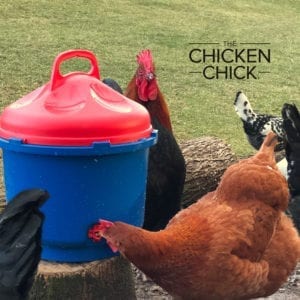
This 3 gallon, thermostatically-controlled poultry nipple drinker is my preferred drinker for my chickens.
Water is the driving force of all nature -Leonardo da Vinci
Chickens cannot be healthy if they are drinking dirty water. A poultry nipple drinker is the best way to deliver consistently clean water to chickens of all ages.
For Metabolism
“Water is involved in every aspect of poultry metabolism. It plays important roles in regulating body temperature, digesting food, and eliminating body wastes. At normal temperatures, poultry consume at least twice as much water as feed. When heat stress occurs, water consumption will double or quadruple.”
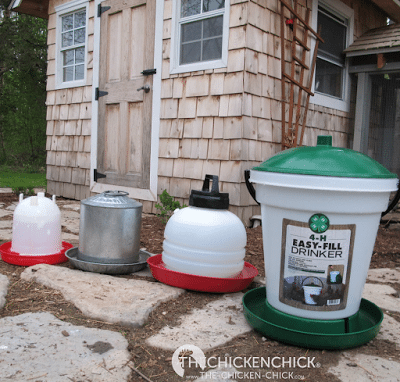
The Essential Nutrient
“Water is often taken for granted, and yet it is probably the most essential nutrient. Water is by far the single greatest constituent of the body, and, in general, represents about 70% of total body weight. Access to water is very important, and a lack of water for several hours will probably cause a decline in egg production. Hens are more sensitive to a lack of water than a lack of feed.”
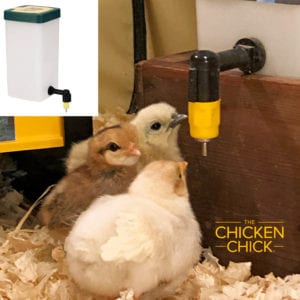
Chick poultry nipple drinkers keep the brooder dry and the water clean 100% of the time!
Amount of Water Needed
“Water and food consumption rates are interdependent, so reduced water intake can also lead to reduced food intake. There are other factors that affect water intake, with temperature being the most obvious one. For example, chickens drink between 30-50% more water when the environmental temperature is above 32oC compared with when it is 21oC. Water intake is also affected by the type of drinkers used. The rule of thumb for water intake is that water intake is usually 1.5 to 2 times feed intake.”
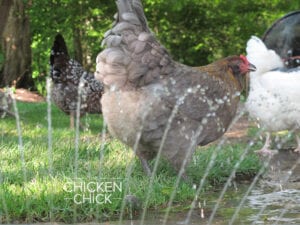
For Digestion
“Water in the crop softens the feed so that digestion can occur. Without the water, dry feed forms clumps in the crop that can press on the bird’s carotid artery, decreasing blood flow to the brain. This can cause paralysis and possible death. Poultry anatomy complicates matters. A split in the upper hard palate of the beak allows air into the nasal passages and prevents the chicken from forming a vacuum in its mouth. Hens, therefore, rely on gravity to draw water into the crop.”
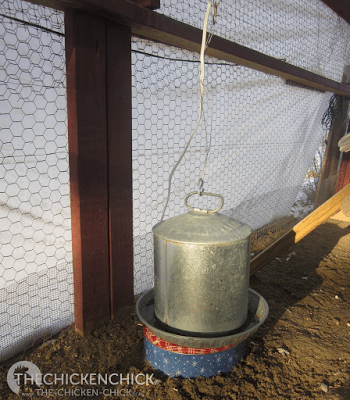
As my flock has grown in size and number, so have the number and size of waterers I have tried. Small, 1 or 2 gallon, opaque waterers allow sunlight to pass through, which causes algae and biofilm growth and they require filling frequently. Not convenient, and slimy water does not support chicken health.
For Egg Production
An egg consists of approximately 75% water and without access to a regular, clean supply of water, a hen will be physically unable to produce eggs.
With baby chicks, I find that raising the waterer up from the floor with a block of wood or cookie tin keeps the water cleaner longer. They will eventually learn to climb on top of the waterer and a large, upside-down funnel works to discourage that behavior.
Keeping water liquid during freezing temperatures is a major challenge that must be met as chickens’ feed consumption increases in the cold and they require water to digest it. I made several cookie tin water heaters, for less than $10 each, which work well in a pinch, but the heated, 3 gallon poultry nipple drinker is my preferred water delivery method, by far.
Kathy Shea Mormino
Affectionately known internationally as The Chicken Chick®, Kathy Shea Mormino shares a fun-loving, informative style to raising backyard chickens. …Read on


shop my SPONSORS

This 3 gallon, thermostatically-controlled poultry nipple drinker is my preferred drinker for my chickens.
Water is the driving force of all nature -Leonardo da Vinci
Chickens cannot be healthy if they are drinking dirty water. A poultry nipple drinker is the best way to deliver consistently clean water to chickens of all ages.
For Metabolism
“Water is involved in every aspect of poultry metabolism. It plays important roles in regulating body temperature, digesting food, and eliminating body wastes. At normal temperatures, poultry consume at least twice as much water as feed. When heat stress occurs, water consumption will double or quadruple.”

The Essential Nutrient
“Water is often taken for granted, and yet it is probably the most essential nutrient. Water is by far the single greatest constituent of the body, and, in general, represents about 70% of total body weight. Access to water is very important, and a lack of water for several hours will probably cause a decline in egg production. Hens are more sensitive to a lack of water than a lack of feed.”

Chick poultry nipple drinkers keep the brooder dry and the water clean 100% of the time!
Amount of Water Needed
“Water and food consumption rates are interdependent, so reduced water intake can also lead to reduced food intake. There are other factors that affect water intake, with temperature being the most obvious one. For example, chickens drink between 30-50% more water when the environmental temperature is above 32oC compared with when it is 21oC. Water intake is also affected by the type of drinkers used. The rule of thumb for water intake is that water intake is usually 1.5 to 2 times feed intake.”

For Digestion
“Water in the crop softens the feed so that digestion can occur. Without the water, dry feed forms clumps in the crop that can press on the bird’s carotid artery, decreasing blood flow to the brain. This can cause paralysis and possible death. Poultry anatomy complicates matters. A split in the upper hard palate of the beak allows air into the nasal passages and prevents the chicken from forming a vacuum in its mouth. Hens, therefore, rely on gravity to draw water into the crop.”

As my flock has grown in size and number, so have the number and size of waterers I have tried. Small, 1 or 2 gallon, opaque waterers allow sunlight to pass through, which causes algae and biofilm growth and they require filling frequently. Not convenient, and slimy water does not support chicken health.
For Egg Production
An egg consists of approximately 75% water and without access to a regular, clean supply of water, a hen will be physically unable to produce eggs.
With baby chicks, I find that raising the waterer up from the floor with a block of wood or cookie tin keeps the water cleaner longer. They will eventually learn to climb on top of the waterer and a large, upside-down funnel works to discourage that behavior.
Keeping water liquid during freezing temperatures is a major challenge that must be met as chickens’ feed consumption increases in the cold and they require water to digest it. I made several cookie tin water heaters, for less than $10 each, which work well in a pinch, but the heated, 3 gallon poultry nipple drinker is my preferred water delivery method, by far.




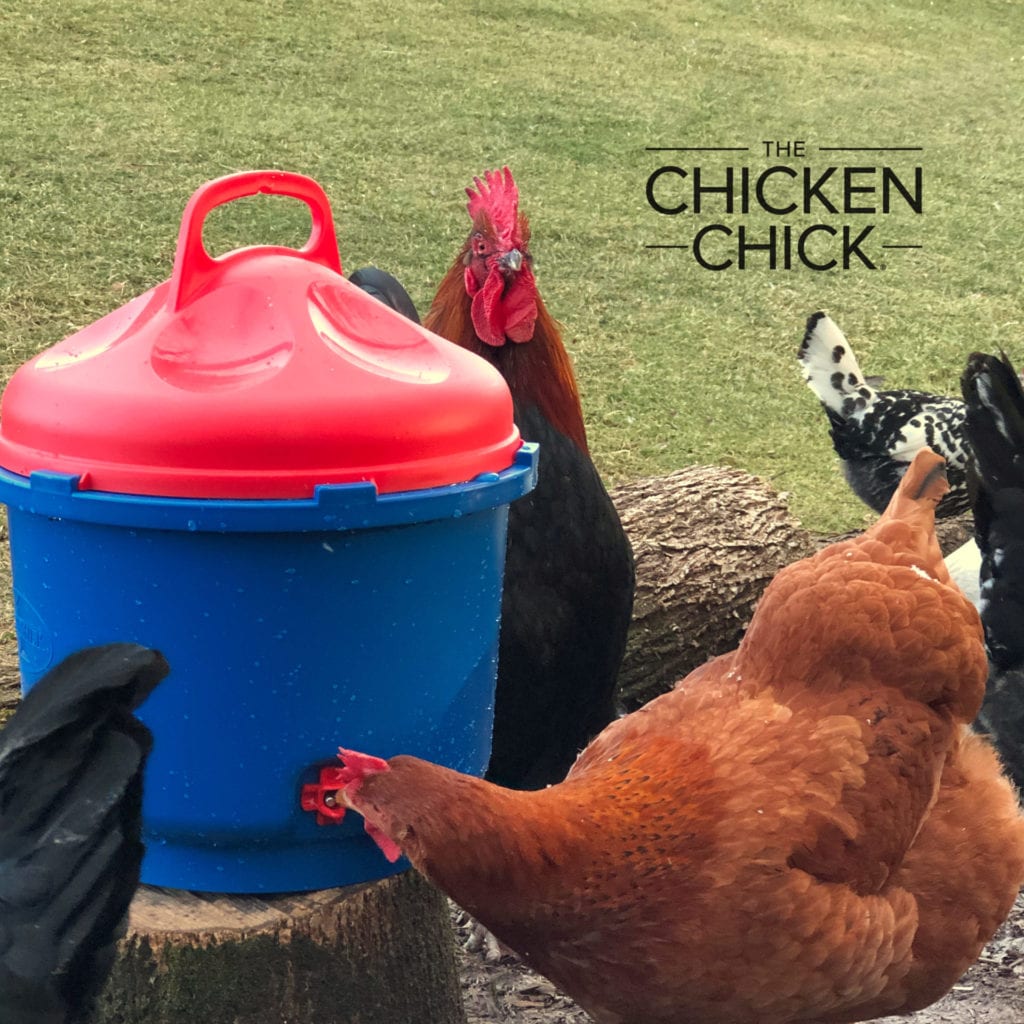
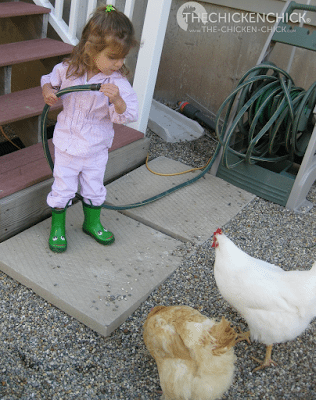
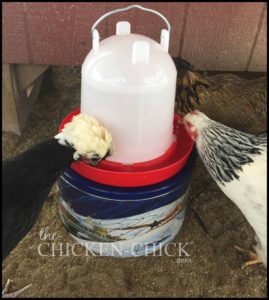
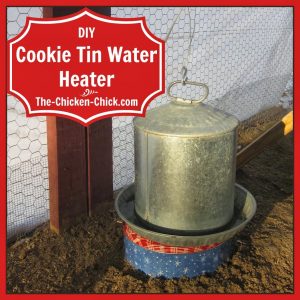









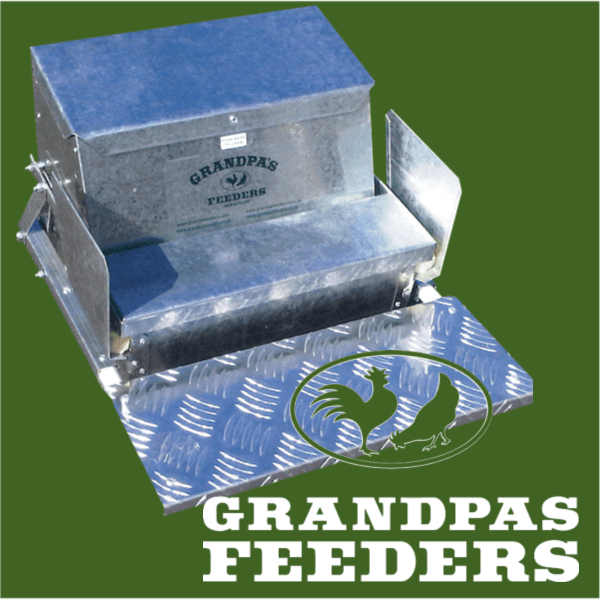






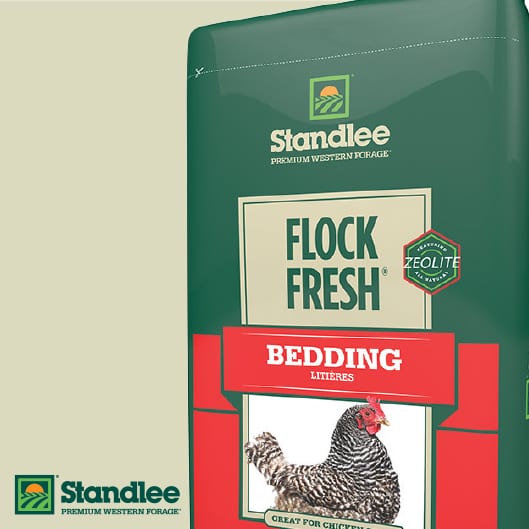

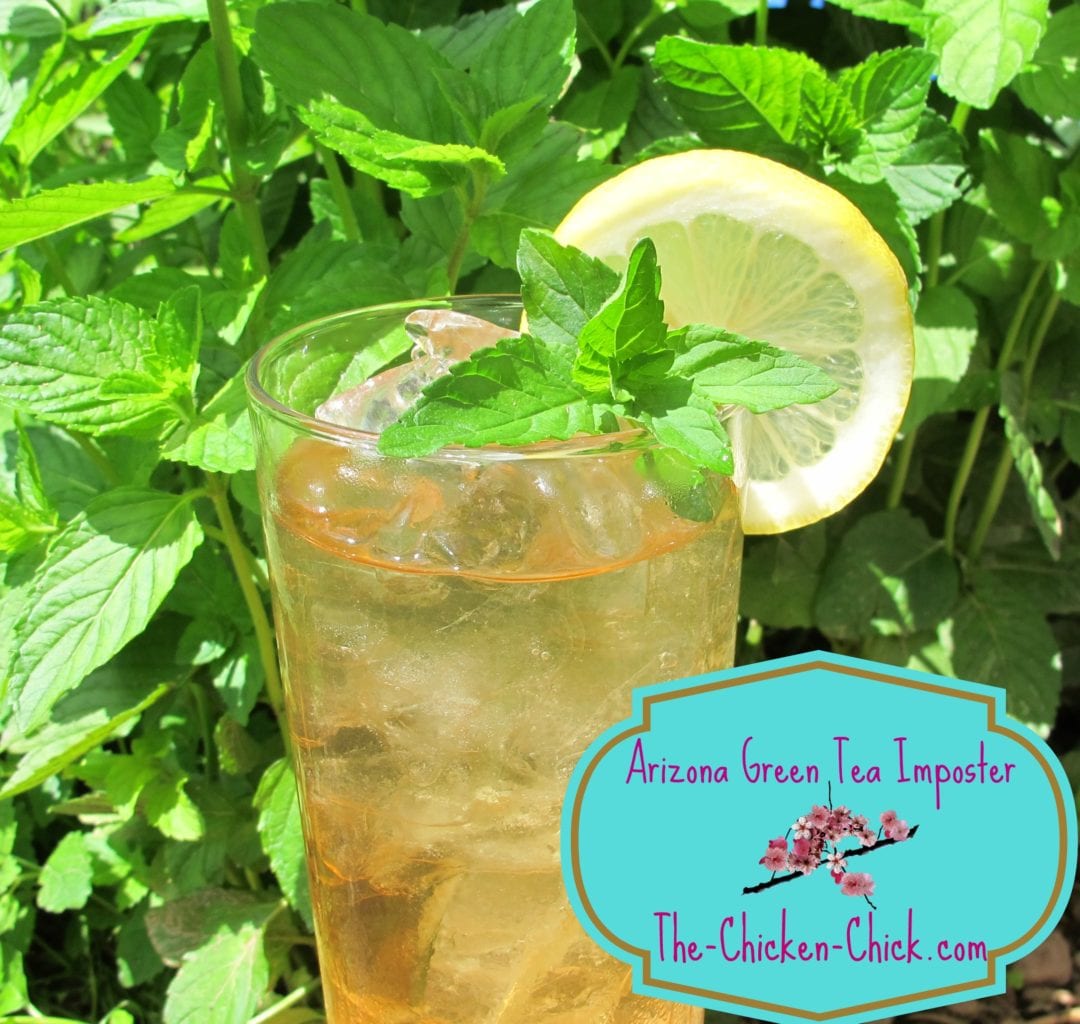
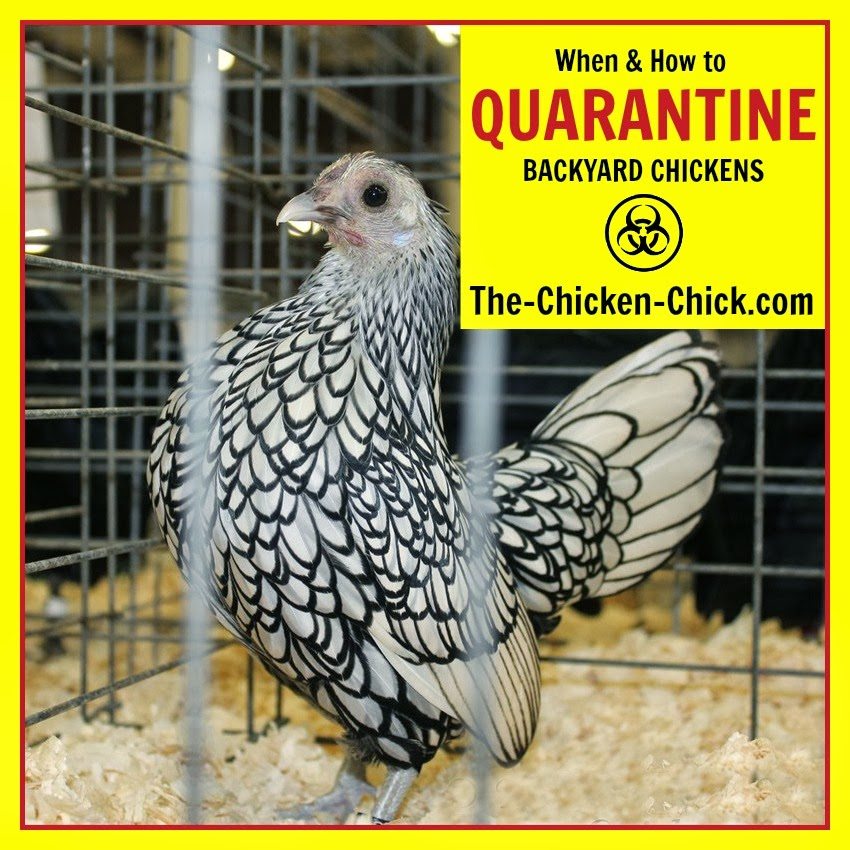













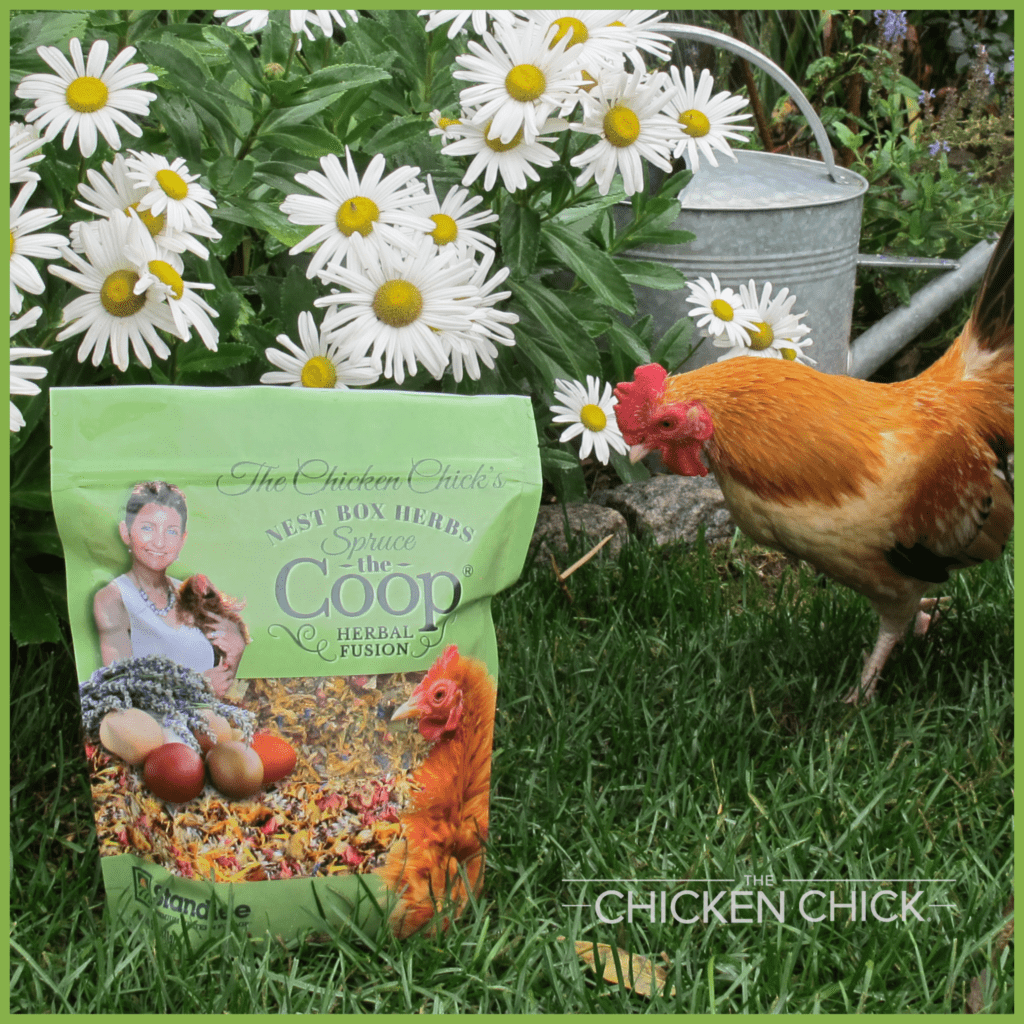

I would love to win the heated 3 gallon poultry nipple drinker. We have gone through 2 over the round heaters and they are a pain. We tried a different kind of plug in water and it was a mess. I’m reading your book now and learning a lot of medical tips that will help me.
We wrapped all of our gravity fed water lines and the nipple drinker tube with Nashua 330X Extreme Weather Foil Tape, 3.5 mil Thick, 50 yards Length x 2" Width, Silver from Amazon. We then with wrapped them with Nuheat heat tapes (Item Code: NUHEAT10219Description: PK-R13P8-1-15 15 foot 120V and Item Code: NUHEAT10210Description: 9PK08W1-75 Nuheat Pipe Tape) from http://www.Morelectric.com. They have heavy duty heat tapes in several different lengths. We tried the cheaper heat tapes but they all failed us. Once that was completed, we then placed 2" foam pipe insulation over all of the heat tape wraps. We also… Read more »
Thrift stores are a sure bet
Have all of the parts except the cookie tin.Who would have thought a cookie can would be impossible to find .Checked Wally mart no. Dollar store. No. Checked craft store. Yes only around X-mas sold out!!!!
i buy organic eggs at a local farmer's market. often, the egg white contains liquid that does not harden when the egg is cooked.
that makes it impossible to make a hard-boiled egg as the yolk will be cooked but the white will have runny sections.
when i asked the chicken owners about this i was told that it's due to the fact that when it's too hot outside, the chickens drink lot of water which ends up in the eggs.
does that seem right? have you ever experienced that? thank you.